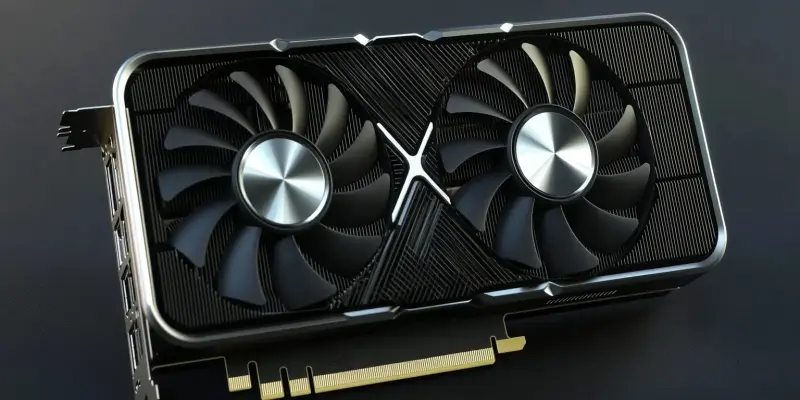The recently surfaced retail packaging for NVIDIA’s GeForce RTX 5080 “Blackwell” consumer GPU, specifically from GALAX, has generated a substantial buzz in the tech community. Initially, deciphering clear information was difficult due to the low-definition images; however, Videocardz managed to extract valuable details from the backside of the package. According to GALAX, the packaging remains relatively unchanged from previous generations. Notably absent are any mentions of advanced technologies such as neural rendering and “advanced DLSS,” which were anticipated based on earlier teases by Inno3D. This omission has led to speculation regarding the technological advancements (or lack thereof) in the RTX 50 series.
Despite the packaging details being unofficial at this stage, there is a palpable sense of anticipation in the tech community for NVIDIA’s comprehensive announcements expected around January 6. The absence of mentions of new features on the packaging raises questions about NVIDIA’s marketing strategy and whether the RTX 50 series will indeed bring the significant technological innovations that enthusiasts hope for. It is also possible that these features are not highlighted on the packaging despite being present in the GPU itself. As the tech world eagerly awaits further details, the overarching consensus is one of cautious optimism. While some anticipate groundbreaking features, others remain skeptical due to the lack of new technological mentions.
In summary, the NVIDIA GeForce RTX 5080 GPU packaging has left enthusiasts and experts alike with unanswered questions. The noticeable absence of expected advanced features on the packaging contrasts with earlier teasers and has fueled discussions about what NVIDIA might unveil in the near future. As curiosity builds, the tech community will have to wait for NVIDIA’s official announcements to gain a clearer understanding of the potential innovations and upgrades that the RTX 50 series may offer. The balance of hope and skepticism continues to shape the discourse as everyone eagerly looks forward to what NVIDIA has in store.

